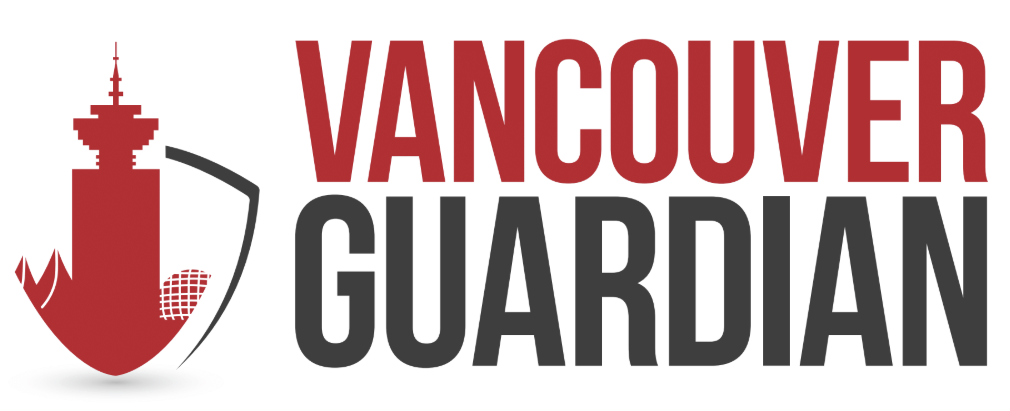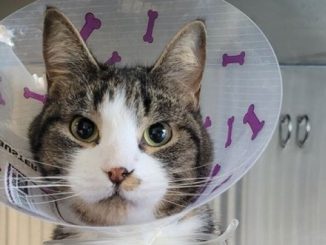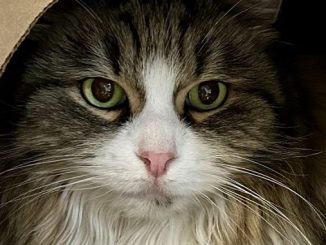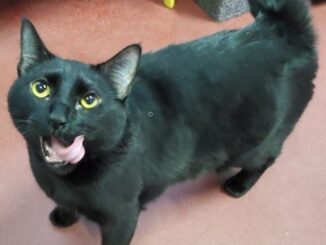International Aid For Animals Foundation (IAFAF) is a non-profit organization that has several projects in Latin America and Kenya, to help animals in need and their humans. We spoke with Founder and CEO Ericka Ceballos to find out more about what they do.

Describe your charity/non-profit/volunteer work in a few sentences
We have several projects in Latin America and Kenya, to help animals in need and their humans. We also educate and provide environmental awareness, how to recycle and use plastic and tin to earn an extra income and for shelters for themselves and their animals, reforesting, co-existing with wildlife, the benefit of protecting wildlife, and so on.
What problem does it aim to solve?
Each project is unique and has its own goals. As an example, our Period Poaches for schoolgirls in remote areas – Kenya Project aims to provide a school year of feminine pads to 500 schoolgirls living in remote rural areas, so they will not miss school, be able to get an education, and avoid becoming a bride child. We have to help them break the cycle and increase their self-esteem.
All of our projects helping cats and dogs (and other domestic and also confiscated wild animals), are created to provide them with a better quality of life, avoid hunger, get vet checks ups, sterilizations, not to be cold and preferably get a good permanent home for as many as we can.
For our Basic Veterinary Clinic – Bolivia Project, we need to get veterinarian equipment and instruments for AFASI Confiscated Wildlife Center, for them to have a basic veterinarian clinic to check and assess, treat, and even have surgeries to their around 600 confiscated wild animal species.
When did you start?
I created IAFAF in September 2019 and registered it in February 2020
What made you want to get involved?
It all started when I was in Peru and Bolivia in 2019. I had to go to Peru on my way to Bolivia, where I was going to have a couple of presentations on my investigations of jaguar and other American felines’ e-commerce and mortality in the Americas, during the First Jaguar Trade Workshop. I did this with my other society: CATCA Environmental and Wildlife Society (CEWS). I have been delivering at UNEP level my animal conservation researches for 18 years.
It was wintertime in Cusco, Peru when I found out that the street dogs were shivering on the old rocky streets by the freezing Andean cold, at what was the hottest time of the day. They have no shelter to protect themselves. It was a truly heartbreaking sight. A couple of days later after the workshop in Bolivia, I went to visit AFASI and by accident, I discovered their complete lack of any basic medical infrastructure to attend any animal in case of an emergency. That prompted me to think of ways to help them.
For many years before, I was already struggling to pay from my own pocket to feed, sterilize and provide vet care for rescued and street cats in Mexico, which became more difficult since the pandemic started as I have not received any salary, so we added the Street Cats – Mexico Project to the other newly created IAFAF projects.
Since 2016, I have been buying and gathering electronics, games, puzzles, socks so on for the rangers in Zimbabwe and Kenya, so when I learned from the Mara Loita Community Rangers how when they get cash donations, they buy some feminine pads to school teenager girls in rural areas to be able to attend school, it was something we had to get involved. Not only we are trying to support these girls by helping them get an education, which will avoid them from turning into child brides, but also by teaching them about how to co-exist with wildlife, the importance of preserving, conserving, and protecting wildlife, recycling, and using recycled materials to make souvenir items which they can sell to get an extra income for their families, reforesting, environmental issues, so on.
I have heard a lot about the struggling dog shelters in Guatemala for years, so when I was invited to visit the shelters last year, I was shocked to see their struggles, how poor they are and how all over Guatemala the dogs and cats are literally starving, because of ignorance and the absurd belief that they can find their own food, even when they are just babies!
The people keep their “pets” outdoors at all times and feed them scraps of food (if any), they would never consider sterilizing them, and they view walking dog/cat skeletons as normal there. Honestly, I have never witnessed in any other Latin American country such misery (or anywhere else for that matter). There is such abuse and neglect caused to these animals on purpose. It is horrible. So since September 2022, we created the Street Animals – Guatemala Project to help feed and care for strays, and help the shelters that are struggling to feed and care for their rescues.
What was the situation like when you started?
Sadly, the pandemic started right after we registered our society, delaying all of our projects, donations became almost nonexistent, fundraiser events could no longer take place at restaurants and pubs due to the limitation of seating for safety concerns, getting volunteers to help with our projects became a big challenge, even if it was to research potential pet companies online to approach during the lockdown.
How has it changed since?
In August 2020, a colleague and friend from ADAV got us a large donation of dog/cat jackets and sweaters from Tisol in Richmond, for our “Street Dog/Cat Waterproof Jackets- Peru Project”. That is how we slowly started to get some support. Then a friend gave us two bags of dog crochet sweaters. Things were very slow for a whole year during the pandemic. Then in September 2021, we got the great support of the Body Shop in Metrotown for our “Period pouches for schoolgirls in remote areas – Kenya Project”. 2022 became the year that changed it all. We got middle school students to sew period pouches and we got donations of textiles for that purpose.
Later on, we were approached by the new Queensborough New Westminster Sewing Club, which had been inactive since the pandemic started. The lovely volunteers are doing an amazing job. Also, the amazing “Greens & Beans” cafeteria and its owner Leona Green chose our charity to be the recipient of their April tips, and so on.
In December 2022, we sent a Canadian volunteer about 35 kilos of donations to Guatemala, to help dog and cat shelters there. This was our first shipment. More deliveries are to come soon for Kenya, Peru, Mexico, and Guatemala hopefully this year. It all depends on the type and amount of donations received. For Bolivia, we are awaiting to see if we receive a grant which could provide us with vet equipment and surgery tools very much needed for the clinic that we are trying to get there.

What more needs to be done?
A lot more. Each project has its own need and requirements, so we cannot do anything without the kind support of the public and individuals like you.
How can our readers help?
1) By helping us get donations of specific items for our projects.
2) By donating.
3) We are also looking for enthusiastic and serious volunteers, to help us with an array of volunteer jobs (many from your own home).
Do you have any events coming up?
IAFAF may have another pop-up sale for animals in early spring, either in North Vancouver or New Westminster, and we will be at the MEOWFEST 23 in Vancouver this August, joining our super amazing ADAV colleagues on their booth.
Please follow us on our social media for updates and news.
Where can we follow you?
Website | Facebook | Instagram
PAY IT FORWARD: What is an awesome local charity that you love?
Of course, I love and am extremely proud of my almost 35-year-old society CATCA Environmental Wildlife Society (CEWS) internationally successful animal conservation work, but sadly we are not a charity.
Therefore, I would like to recommend the Canadian Disaster Animal Response Team (CDART). This is a great charity doing so much good to help animals during disasters. Her founder is the amazing Cheryl Rogers, who always helps animals here and there.




